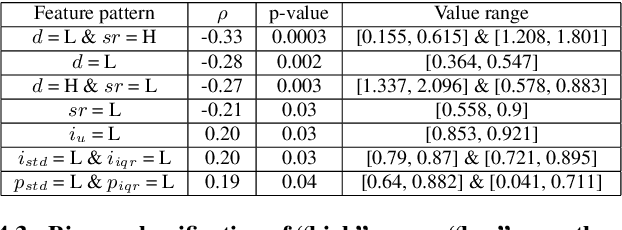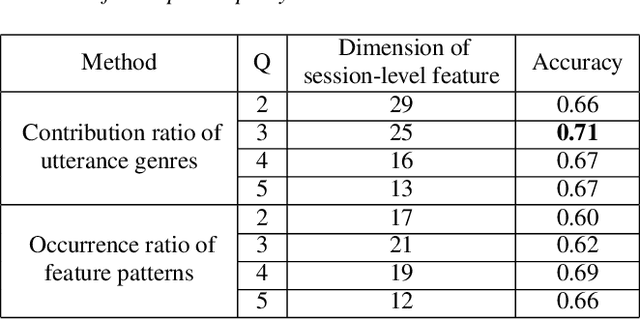Characterizing Therapist's Speaking Style in Relation to Empathy in Psychotherapy
Paper and Code
Mar 24, 2022


In conversation-based psychotherapy, therapists use verbal techniques to help clients express thoughts and feelings and change behaviors. In particular, how well therapists convey empathy is an essential quality index of psychotherapy sessions and is associated with psychotherapy outcome. In this paper, we analyze the prosody of therapist speech and attempt to associate the therapist's speaking style with subjectively perceived empathy. An automatic speech and text processing system is developed to segment long recordings of psychotherapy sessions into pause-delimited utterances with text transcriptions. Data-driven clustering is applied to the utterances from different therapists in multiple sessions. For each cluster, a typological representation of utterance genre is derived based on quantized prosodic feature parameters. Prominent speaking styles of the therapist can be observed and interpreted from salient utterance genres that are correlated with empathy. Using the salient utterance genres, an accuracy of 71% is achieved in classifying psychotherapy sessions into "high" and "low" empathy level. Analysis of results suggests that empathy level tends to be (1) low if therapists speak long utterances slowly or speak short utterances quickly; and (2) high if therapists talk to clients with a steady tone and volume.
 Add to Chrome
Add to Chrome Add to Firefox
Add to Firefox Add to Edge
Add to Edge